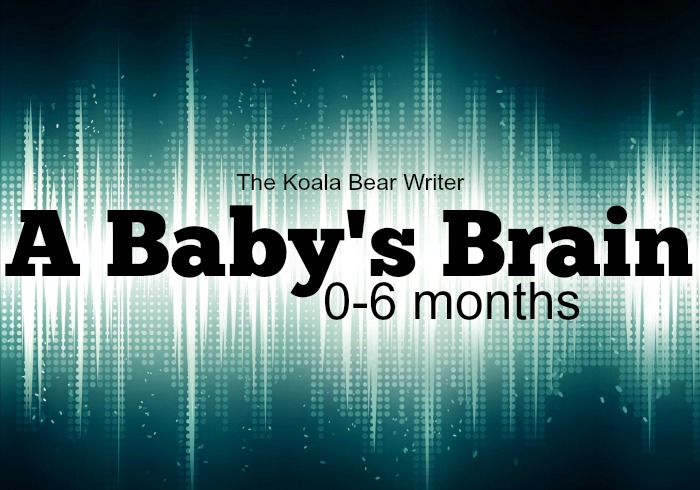Sometimes, when we’re in a new situation or meeting someone for the first time, I find myself watching Jade, wondering what she’s thinking. A baby’s first six months is a time of huge change and learning and I’m fascinated as I watch her processing her world and learning to express herself.

When Jade was newborn, I was often asked how well she could see. Everyone seemed to know babies can’t see very well when they are born, but wanted to know when her sight would develop. I had to look that up myself. Newborn babies can see about twelve inches from their face—or about the distance from their face to their mother’s face when they are being held or nursed.
In their first six months, vision is important for baby’s brain development. Babies like eye contact and smiles. One of Jade’s favourite books at this age was Kiss Tickle Cuddle Hug by Susan Musgrave, a board book that features big pictures of babies’ faces. Jade smiled and laughed all the way through the book. I remember Sunshine’s first big belly laugh—at herself in a mirror. All of our girls have had fun looking at themselves in the mirror. At this age, peek-a-boo is a great game to play (and one that Jade still enjoys, as she can now put her blanket over her face herself).
How does music affect a baby’s brain? Scientists aren’t sure yet, but most parents know that music seems to have a soothing effect on babies. Out of our children, I think Jade has been the one to respond to music the most. We had the same mobile above the crib for all three girls, yet Jade was the only baby to laugh and watch it for as many times as I would wind it up for her—until it broke. And I still remember turning on a favourite MercyMe CD to calm myself down while bouncing her to sleep—and having it calm her down as well.
At this age, parents’ responses affect their baby’s brain development. Newborns are learning about their world and all the sensations associated with it—hunger, tiredness, cold, loneliness. As they express their needs, parents can help their brain development by responding to these needs. Social worker Gilian Gertz explains, “When parents respond to babies’ needs, usually by holding them, [that] gives them a sense of security and connection to their caregivers.”
Breastfeeding is also important for a baby’s brain development. Gertz mentions a recent study which found “that breastfeeding improved both language skills at age three, and intelligence at age seven.” She explains that “the relevant factor is thought to be DHA, a long chain fatty acid that is present in breast milk, and is correlated with improved cognitive function.” Dr. Sears says mother’s milk has “smart fats” which “contribute to the growth of baby’s brain tissue, especially myelin, the fatty coating that insulates each nerve fiber, enabling messages to travel faster and more efficiently between brain circuits” (The Baby Book, 2003).
When Jade was newborn, she loved having foot rubs. She’d calm down and lay quietly while we played with her feet, stroking and touching, and again, I liked watching her face, wondering what she was thinking about this new sensation. It turns out that touch is actually good for her brain too. Dr. Sears says “studies show that newborns receiving extra touch display enhanced neurological development”—perhaps because touch also promotes the growth of myelin.
I often put Jade in a sling while I worked during her first months. I’d end up with a sore back from wearing her over one shoulder, but she was happy. Babywearing is also good for her brain—because she was crying less, she had more time to learn. Dr. Sears says “carried babies show an increase in awake-contentment time… the behavioral state in which an infant learns most by being able to connect and interact with his environment.”
There is so much going on with baby’s brain at this stage! It really is a blessing and a privilege to be able to watch Jade as she learns and grows. With Jade, it’s also been fun to see Sunshine and Lily sharing in the excitement of everything their little sister does.

3 Comments
The brain is an amazing thing. My children are three years old (this month) and 15 months. It amazes me what they know and how they pick things up. Personally I think they are geniuses but I also know that most kids are sponges so really their knowledge isn’t really that unusual (bur really they are geniuses:)
I’ve wondered so many times what Wyatt is thinking about things. He, too, LOVED it when I would put him in the Moby wrap. He has only rarely seemed interested in music so far, though. I hope that eventually he will love it though. 🙂
Isn’t it incredible how complex the baby’s brain is at such a tender age – yet, something so simple as music, baby wearing and closeness can do the most profound things for their development. Love this post! Hoping to one day refer to this again when I need a reminder 🙂 xx